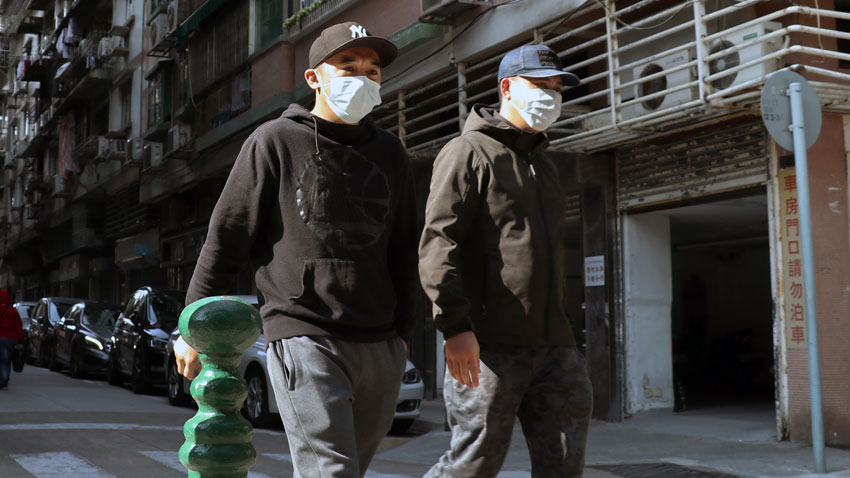by Marcus Oxley
The upwards trend in disaster losses is an indicator of unsustainable development – a warning that something is fundamentally wrong with our development pathway. The impact of hazards, such as the Coronavirus, can expose and increase fragilities in society and undermine hard- earned development gains. The ability of people and organisations to cope with extreme disruptions whilst still sustaining functionality is referred to as resilience. In a world increasingly defined by extremes, resilience is an essential characteristic of sustainability.
Disaster losses occur when vulnerable people and assets are exposed to extreme hazards. Disaster risk management aims to reduce the likelihood of losses by addressing the causes of vulnerability, exposure and hazards and strengthening resilience capabilities. Typically this involves: 1/ Enhancing preparedness for effective response; 2/ Structural and non-structural measures to mitigate risk drivers; 3/ Supporting resilience recovery. In general, the greater resilience, the more effective the response, the quicker the recovery, and less the impact of the hazard.
When communities are subjected to extreme hazards, they reveal relative strengths and weakness; highlight interdependencies; identify risk drivers; and define thresholds not apparent in “normal” conditions. These unique insights can be used to identify priority actions to mitigate and prevent the creation of risk. Moreover, the impact of extreme events can disrupt the status quo and provide an imperative to act. This can mobilise political will and release resources to strengthen resilience.
Whilst disaster response and recovery can be chaotic and traumatic, it can provide a leveraged entry point to initiate actions and reforms to addresses risk drivers that are difficult to change in “normal” times. Significantly, a “build back better” approach can serve as a precursor to “building better before”, supporting a transition to a more resilient and sustainable society. However, opportunities for reform can close quickly in the rush to return to normality and political attention inevitably moves on to new and seemingly more urgent tasks..
Turning adversity into opportunity starts with an assessment of impacts, capacities and vulnerabilities. From a UK perspective, the full impact of the coronavirus is still emerging, with a risk the public health crisis will have multiple waves of infections leading to an extended period of economic and social crisis. An initial assessment reveals a government that was inadequately prepared; developed an inappropriate strategy; adopted a centralised and ineffectual approach to implementation; relied on a narrowly-defined leadership team and advisory group(s) with a lack of diverse backgrounds, skills and practical experience; was slow to learn and embrace science and technology innovations; all compounded by a general lack of transparency, accountability, empathy and clarity of messaging resulting in a gradual eroding of public trust and support.
Perhaps most significantly, the government has not adequately protected essential workers and the most vulnerable groups, notably the elderly, chronically ill, minorities and lower-income households. The impact of the virus has revealed a lack of policy coherence across sectors (e.g. public health, NHS, social care, economic support) and further highlighted societal inequalities and regional differences. After an initial show of unity, the virus is driving a re-emergence of societal divisions. These divisions and fragmentation of approach, reveals deep rooted fragilities and tensions within British society.
On a positive note, the imposed travel restrictions and economic contraction has caused a substantial drop in pollution and greenhouse gas emissions. In urban areas there has been noticeable improvements in air quality and reduced road and air traffic noise. More people are using local shops with increases in physical exercise that lowers the risk of heart and respiratory diseases, obesity and cancer – diseases that increase risk of Covid 19. The virus has raised public awareness of links between public health, environmental health and climate mitigation. This could be further expanded to a more holistic understanding of public health that connects human health and security, environmental health and planetary health, linking environmental degradation and the emergence of infectious diseases.
From a resilience lens, key weaknesses can be summarised as: 1/ poor governance; 2/ slow learning; 3/ inadequate preparedness; 4/ limited inclusion; 5/ weak social cohesion; 6/ Lack of policy coherence. On a more positive front, resilience strengths include: self-organisation by local authorities; 2/ general public consent / compliance with rules; 3/ increased solidarity amongst local neighbourhoods; 4/ enhanced connectivity across different constituencies; 5/ increased awareness of human and environmental health issues..
Despite an unprecedented government intervention, supported by considerable financial resources, the UK is likely to be one of the worst effected countries in Europe in terms of excessive deaths and economic impact. More than available funding, the quality of a nation’s governance and leadership, the strategic choices it makes informed by understanding risk, and the approaches it uses to execute plans, has enormous influence over the effectiveness of the Coronavirus response and recovery.
Similar to other disasters, the pandemic will undoubtedly disrupt and expose systemic failings in the dominant model of development. The ability to capitalise on these insights and disruptions will require good governance and visionary leadership, that is prepared and ready to act as opportunities arise. As the response moves to recovery, it is likely government’s will start to apply Keynesian economics to support private sector industries and increase public investments to stimulate demand, provide employment and pull the economy out of a recession. At this critical time, as resources are released, there is potential to accelerate investments in resilience and sustainability that meet economic, social and environmental goals.
In conclusion, a coronavirus recovery can provide a leveraged entry point to shift towards a more sustainable development paradigm. However, post-disaster recovery experience tells us these opportunities will not materialise automatically. Seizing the moment requires visionary, proactive and sustained leadership and a learning culture, together with an all-of-society approach able to work collaboratively across traditional boundaries and forma/ / informal stakeholders.

